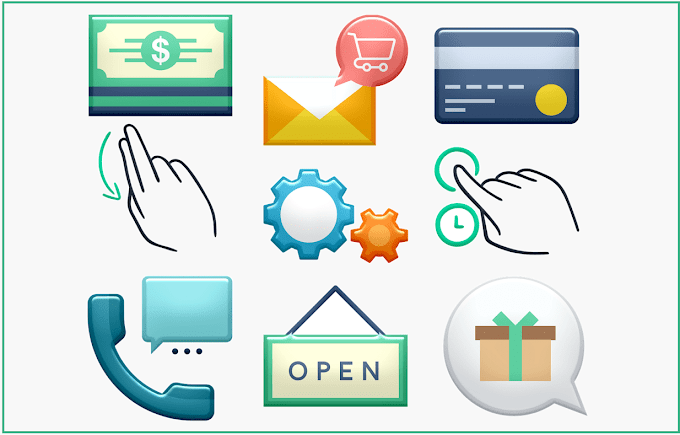
Ever since the digital world has evolved, security has been the evergreen tech concern. Privacy is an individual’s right – their right to choose details they want to disclose and information they don’t want to reveal about themselves. Headed into this technological era, where the use of internet has become more and more common, we are stripped off our right to privacy gradually every day. If you want to protect your privacy, there are also kiosks that offer excellent kiosk security to store your data.
It is then upon us to make sure that our privacy rights are maintained, if not respected otherwise.
Technology and Its Impacts
We’re in an era where even our air conditioners have Wi-Fi. It is almost impossible to tell technology and internet apart because both are now correlated.
Our devices and the internet feel like as much of a necessity as anything else. But as we grow more and more immune to it, it comes with great consequences and impacts personal data, security and privacy.
Impact of Social Media
Most commonly used by the majority of the population is social media. Not only the youth, but the adults are hooked to it as well and are glued to it round the clock. Such platforms include Snapchat, Twitter, Instagram and Facebook.
There are very few who don’t use these platforms, others already have it. When you first create a profile, you are asked for your personal details that pretty much gives away all your basic information such as name, age, date of birth, gender, email address, phone number and picture. All of this data is then kept in the social media’s database. That, along with all the other activity you carry on the social website / app – the people you follow, the pictures you like, the videos you watch and the posts you interact on, is recorded. This is then used to show relevant content to you, which is great, but at other times it is sold to third party companies who then choose their target audience to display ads.
There are various political organizations that use information from such data breaches to influence the opinion of the public. This is not just a theory formed in the air. Political events which have been reported where politicians paid Cambridge Analytica to use information from data breaches are as following:
- 2015 and 2016 campaigns of United States politicians Donald Trump and Ted Cruz
- 2016 Brexit vote
- 2018 Mexican general election, 2018 for Institutional Revolutionary Party
Facebook director, Mark Zuckerberg, was also caught in the act and while he apologized for the situation, Facebook users still feel that this was a breach of trust as well as data.
Data Surveillance Agencies
Data surveillance is the monitoring of activity on a computer or over the internet, which is carried out covertly by government, corporations, criminal organizations, copyright agents or even individuals. This act may or may not be illegal, though it is done regardless. Companies and other agencies make millions selling large databases.
There are also laws by governments, such as the government of United States, United Kingdom, Australia and more, which obligate the Internet Service Providers to record and maintain the user data for a period of at least 6 – 12 months to a maximum of 2 years. It is the storage of telecommunications, internet traffic and transaction data.
ISPs that monitor your data often throttle with your speed which becomes irritating for torrenteers. Another thing at risk for people who download torrents it that if copyright agents are on the lookout, they will track the user’s IP, ask the ISP to track the user down to the exact location and have him bear the consequences. The consequences may sometimes be just hefty fines or as elaborate and intense as jail time.
Protection against Personal Data Leakages
There are a million things that can go wrong if your data gets into the wrong hands. This is why it is a matter that should be given grave importance and precautions must be taken before you become a victim. Here are ways you can protect yourself from the negative impact of technology on your personal data:
1. Anonymizing proxies
There are such proxies that provide a web experience that is slightly more private. They use an HTTPS encryption to provide a level of protection.
2. Privacy enhancing tools
Then there are tools such as Tor, Mixmaster and I2P that allow to evade data retention, gives encryption and allows anonymous browsing. However, not all is possible with a single tool. Each tool offers different method of privacy.
3. VPN
Finally, there’s VPN which allows P2P communications, anonymous browsing, provides encryption, gives access to geo-restricted content and secures your data while you carry out any browsing online. This allows torrenteers to download torrents anonymously without the fear of torrenting and also lets a user browse the internet restriction-free without having to worry about hackers or any other intruders. This makes the use of a VPN a clear winner when compared to the other two options.
Conclusion
As time goes by, we are only advancing more in terms of technology. Data breaches and impact of technology on personal data, privacy and security is inevitable. However, it is not impossible to guard yourself. While all the threats online exist, there are precautionary measures that can be taken to keep them at bay as well.




![Performance Marketing - What Is it & How It Works [+ 6 Tools You Can Use]](https://blogger.googleusercontent.com/img/b/R29vZ2xl/AVvXsEj0akcIPU36HHfqWoYrb2LCMNG8OvxPb9drUYKWJZvSXmfbJG0OrjN5jfzTFDmT-9MKcuZt-G-66PiLlIVjgX1DwCNzHeIMW0pjW7W3IB2rZYzx4ISbL2T6JC4M38eubqHxQ3e71l2_n7oxh2f2QdV3d1prJ6z9HQNsSyfjtO18diLxEZg-5wD-I6RINFY/w680/performance_marketing-min.png)





0 Comments